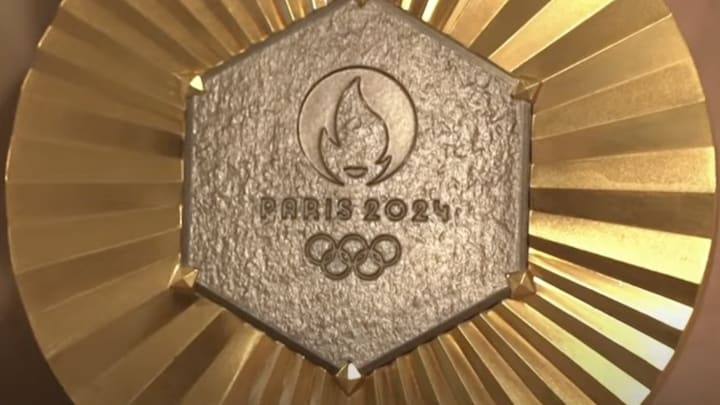Everything to Know About Olympic Medals and What Athletes in Paris Win

The Paris Olympics have begun and athletes from around the world have begun to collect their hardware. While winning an Olympic medal is historically significant any year, Olympic athletes who win a medal in 2024 get to take home a piece of one most famous structures in the history of the world.
Olympic glory is its own prize, but medals and money are pretty cool too. Here's what Olympic medalists will earn by succeeding on the biggest stage in sports.
Olympic Medals Feature Metal From Eiffel Tower
Whenever the Eiffel Tower underwent renovations during the 20th century, pieces of the original wrough iron were preserved. Someone in France probably wondered aloud why they didn't throw that stuff away, but someone else probably kept saying they might use it for something someday. What a victorious moment for that person when they decided to use that old metal for Olympic medals.
According to The Athletic, the gold medals, produced by French jeweler Chaumet, weigh 1.17 pounds, the silver medals weigh 1.16 pounds and the bronze comes in at an even pound. Approximately 0.04 pounds of the Eiffel Tower iron is included in each medal.
Are Athletes Gifted Anything Other Than Medals in Paris 2024?
According to the official Olympic website, the first eight athletes in each event "receive a diploma, and their names are announced to the public." There does not appear to be a gift basket involved. So all they get is a medal worth approximately $950 according to Forbes.
Do Olympic Athletes Win Money?
Olympic glory is great, but you can't pay your bills with prestige. Luckily, home countries often give medalists with monetary rewards. U.S. Olympians get $37,500 for a gold medal, $22,500 for a silver medal and $15,000 for a bronze.
Other countries who win significantly fewer medals pay much more. Serbia, for example, is reportedly giving gold medalists $214,900 in 2024. Malaysia and Morocco will also pay out over $200,000 to anyone who comes home with gold.
In addition to that, track athletes who win gold get an extra $50,000 from World Athletics.
No matter how much you earn, you've always got a piece of the Eiffel Tower.
History of Olympic Medals
Medals have been given since the first modern Olympic games in 1896 in Athens, Greece. According to the official Olympics website, first place was actually awarded a silver medal, an olive branch and a diploma. Second place got the only other medal which was a bronze-copper combination, a branch of laurel and a diploma.
When the games were played in Paris four years later first place received gilt silver, which is a silver gilded with gold. (Gilt silver and gold have been interchangeable ever since.) Second place got regular silver and third place earned bronze. Oh, and the medals were rectangular.
What we think of as the traditional modern medal was debuted in 1904 at the St. Louis Olympics. Gold, silver and bronze were given to first, second and third place and the medals came attached to a colored ribbon.
